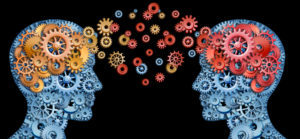How Mentally Strong Leaders Influence Using the NLP Mental Map Model
 Most of us at some point in our careers have experienced a boss or co-worker who exerted their influence by means of control. Controlling methods include instilling fear, verbal or physical threats, insisting on a ‘do as I say mantra’, and breaking the rules.
Most of us at some point in our careers have experienced a boss or co-worker who exerted their influence by means of control. Controlling methods include instilling fear, verbal or physical threats, insisting on a ‘do as I say mantra’, and breaking the rules.
Today I want to show you how mentally strong leaders use the NLP ‘mental map’ influence model. This is designed to help * Make you more influential * Deepen your rapport and connections with others * Create congruence in thinking, emotions, and actions
INFLUENCE IN THE WRONG HANDS
We know that influence in the wrong hands, leaders who knowingly leverage people and situations for their own agenda, crosses over an ethical line into manipulation or even mental or emotional abuse.
That is why it is important that mentally strong leaders exert the ability to harness several personal assets. These are mindful awareness of others beliefs and expectations, demonstrations of empathy, and drawing on leadership skills to adjust their style to exert positive influence over others.
POSITIVE INFLUENCE
To sustain positive influence in others is the ability to mindfully and intentionally modify followers’ behaviors, beliefs and attitudes, thereby controlling the amount of change in a person’s attitude or behavior as a result. This process leaves them congruent mentally and emotionally, with an outcome that has them situated in a ‘good place’ for all involved.
But in order to influence others mindfully and intentionally, you have to walk in the other person’s shoes. This means you step into their mental map of the world, gaining an appreciation of how they perceive a given situation.
Since no two people are alike, no two mental maps are alike. One of the challenges every leader faces is dealing with the different ‘mental maps’ of the people they lead.
DEFINING MENTAL MAP
Our ‘mental map’ is a road map for living our lives and making sense of the world. This map is formed from factors such as our beliefs, values, experiences, past traumas, attitudes, upbringing, schooling, habits, and behaviors that provide us with a lens through which we see the world. We will always respond to the world according to our individual mental map.
What causes one person to be an engineer, another a sales associate and yet another an accountant or teacher? Why are some people successful and others find success elusive? Your mental map exerts great influence.
GAINING POSITIVE INFLUENCE
The following tips can make you more influential, deepen your rapport and connections with others, and create congruence enabling others to act with purpose.
1. Be in a receptive state of mind by freeing your mind from making assumptions. Avoid making preconceived judgments before you have all necessary information in hand.
2. Ask open-ended questions to elicit information that helps you gain a better understanding of their situation.
3. Suppress your internal dialog. Watch, listen and sense any changes in your followers’ emotional state and body language.
4. Listen to the other person’s choice of words. Words speak volumes about how they think and feel, reflecting their inner experiences.
5. Think about the statement “I can’t do that here.” It’s indicative of limited thinking, meaning they feel they have no choice. ‘I” is the person’s identity; ‘can’t’ relates to their limiting belief; ‘do’ expresses their capability; ‘that’ indicates a behavior; and ‘here’ is the environment.
6.Expand their possibilities by suggesting they replace “I can’t” with “I won’t.” Have them ask, “What specifically can’t you do, or won’t do?” or “What would happen if you did, or did not, do that?”
In everyday context, this is one NLP model that gives you an effective way to gather information respectfully and gain an insightful inside look into another person’s ‘mental map’ of their world. It enables you to help them be more congruent in thought, emotions and action.
If you like this post, I invite you to share it.
Copyright 2017 Jennifer Touma Mindscape Mindscapemind
What is Mental Toughness? Mental toughness is the quality that enables us to excel, be resilient and emotionally steady in difficult personal and professional situations.
What is NLP?
*Neuro – is how we think
*Linguistic – how you communicate your thoughts to others. Body language, gestures, facial expressions and movement are all non-verbal cues that express what words may not.
*Programming- the habits we develop daily



